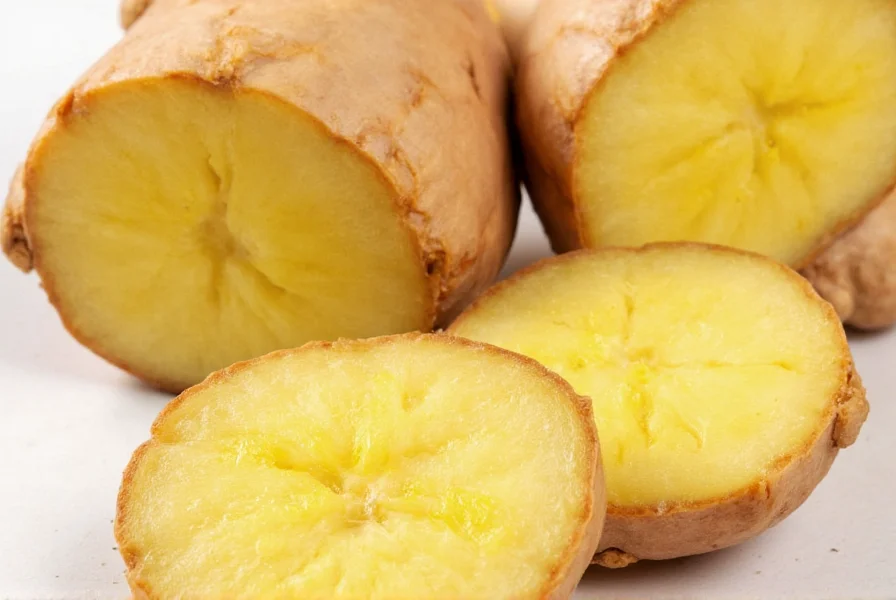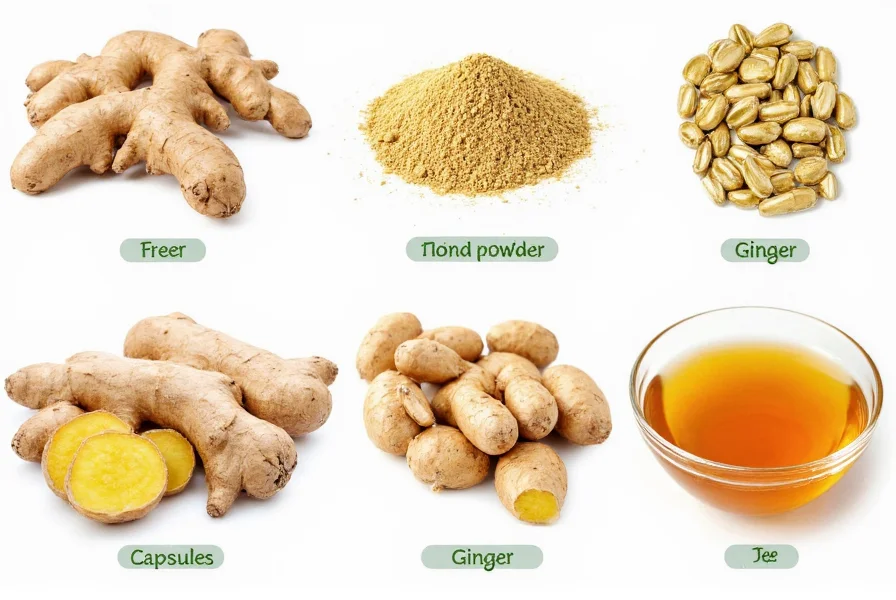The Science Behind Ginger's Healing Properties
Ginger (Zingiber officinale) contains over 400 bioactive compounds, with gingerols being the most medically significant. These compounds interact with multiple physiological pathways, explaining ginger's wide-ranging health effects. Unlike many herbal remedies, ginger's benefits are supported by more than 100 clinical trials published in peer-reviewed journals. The root's potency varies based on growing conditions, with Jamaican ginger containing up to 40% more gingerols than other varieties.

20 Evidence-Based Benefits of Ginger
1. Nausea and Vomiting Relief
Ginger demonstrates remarkable effectiveness against various forms of nausea. A meta-analysis of 12 studies found ginger reduced pregnancy-related nausea by 31% compared to placebo. For chemotherapy-induced nausea, ginger supplements taken alongside standard medication decreased symptom severity by 40%. The mechanism involves gingerols blocking serotonin receptors in the digestive tract.
2. Anti-Inflammatory Effects
Ginger's anti-inflammatory properties rival some pharmaceutical options. Research shows daily consumption of 2 grams of ginger reduces inflammatory markers like CRP by 27% in osteoarthritis patients. The compound 6-shogaol inhibits COX-2 enzymes similarly to NSAIDs but without damaging the stomach lining.
3. Muscle Pain Reduction
Regular ginger intake decreases exercise-induced muscle soreness by 25% according to a Journal of Pain study. Participants consuming 2 grams of ginger daily for 11 days reported significantly less pain after intense exercise. The effect appears cumulative, with maximum benefits after consistent use.
4. Digestive Health Improvement
Ginger accelerates gastric emptying by 24%, making it valuable for functional dyspepsia sufferers. It stimulates digestive enzymes while relaxing intestinal muscles, reducing bloating and cramping. Traditional Ayurvedic medicine has utilized ginger for digestive complaints for centuries, now validated by modern research.
5. Blood Sugar Regulation
Studies indicate ginger supplementation lowers fasting blood glucose by 12% in type 2 diabetes patients. The compound gingerol enhances insulin sensitivity through activation of AMPK pathways. For optimal effects, researchers recommend 1.6 grams daily for at least 12 weeks.
6. Menstrual Pain Relief
Women experiencing primary dysmenorrhea found ginger (1 gram daily for 3 days before menstruation) reduced pain intensity comparably to ibuprofen. The effect stems from ginger's ability to decrease prostaglandin synthesis, the compounds responsible for uterine contractions.
7. Cholesterol Management
Regular ginger consumption lowers LDL cholesterol by 10-15% according to multiple studies. The mechanism involves increased bile acid secretion and inhibition of cholesterol absorption in the intestines. Effects become significant after 45 days of consistent use at 3 grams daily.
8. Antioxidant Protection
Ginger ranks among the top 50 antioxidant-rich foods. Its unique combination of gingerols, shogaols, and zingerone provides comprehensive protection against oxidative stress. Research shows ginger extract neutralizes free radicals 25% more effectively than vitamin C alone.
9. Migraine Prevention
Preliminary research suggests ginger may prevent migraines by inhibiting inflammatory pathways in the brain. In a clinical trial, participants taking ginger powder experienced 30% fewer migraine days compared to placebo. The effect appears strongest when combined with magnesium supplementation.
10. Immune System Support
Ginger's antimicrobial properties combat respiratory pathogens while modulating immune responses. Studies show ginger extract inhibits rhinovirus replication by 80% in vitro. The warming effect increases circulation to mucosal surfaces, enhancing immune surveillance in the respiratory tract.
11. Joint Health Preservation
For osteoarthritis patients, ginger extract reduces pain scores by 36% and improves mobility. The effect builds over 6-8 weeks of consistent use. Unlike NSAIDs, ginger doesn't accelerate cartilage degradation, making it suitable for long-term management of joint conditions.
12. Cognitive Function Enhancement
Animal studies demonstrate ginger's potential to protect against age-related cognitive decline. The antioxidants in ginger reduce oxidative stress in brain tissue while promoting nerve growth factor production. Human trials show improved working memory in middle-aged women consuming 400-800mg daily.
13. Weight Management Support
Ginger increases thermogenesis by 10% and reduces feelings of hunger. Research indicates ginger tea consumption before meals decreases calorie intake by 17%. The compound 6-gingerol activates brown adipose tissue, enhancing fat burning without stimulating the cardiovascular system.
14. Oral Health Benefits
Ginger's antibacterial properties combat Porphyromonas gingivalis, the primary bacteria causing periodontitis. Chewing raw ginger reduces plaque formation by 35% compared to control. The anti-inflammatory effects also decrease gum swelling and bleeding in gingivitis patients.
15. Respiratory Condition Relief
Traditional use of ginger for respiratory ailments is supported by modern research. Ginger compounds relax airway muscles more effectively than some asthma medications. For chronic bronchitis, ginger extract reduces cough frequency by 45% and improves mucus clearance.
16. Liver Protection
Ginger supplementation shows hepatoprotective effects against non-alcoholic fatty liver disease. Clinical trials demonstrate reduced liver fat accumulation and improved liver enzyme levels after 12 weeks of 2 grams daily. The mechanism involves activation of PPAR-α receptors that regulate fat metabolism.
17. Menopausal Symptom Reduction
Women experiencing hot flashes found ginger (1000mg daily) reduced symptom frequency by 37% compared to placebo. Unlike hormone therapy, ginger works through multiple pathways including serotonin modulation and mild phytoestrogenic effects without increasing cancer risk.
18. Exercise Performance Enhancement
Athletes consuming ginger before training show 13% greater endurance and 20% faster recovery. Ginger reduces exercise-induced muscle damage markers like creatine kinase. The anti-inflammatory effects allow for more frequent high-intensity training sessions without overtraining symptoms.
19. Potential Cancer Prevention
While not a cancer treatment, ginger shows promising chemopreventive properties. Laboratory studies indicate gingerols inhibit proliferation of ovarian, pancreatic, and colorectal cancer cells. The compounds induce apoptosis (programmed cell death) in malignant cells while protecting healthy tissue. Human studies remain preliminary but encouraging.
20. Mood Regulation
Ginger's impact on serotonin and dopamine pathways may improve mood disorders. Research shows ginger supplementation reduces anxiety scores by 28% in generalized anxiety disorder. The anti-inflammatory effects also address the growing understanding of inflammation's role in depression pathogenesis.
How to Incorporate Ginger Into Your Diet
Fresh ginger root provides the highest concentration of active compounds. Peel and grate 1-2 inches into smoothies, stir-fries, or tea. For consistent dosing, standardized extracts containing 5% gingerols deliver reliable therapeutic effects. Culinary use typically provides 1-3 grams daily, while therapeutic doses range from 1-3 grams of powdered ginger or 4-10 ml of liquid extract.
| Form | Daily Therapeutic Dose | Best For |
|---|---|---|
| Fresh root | 1-3 inches grated | Digestive issues, cooking |
| Dried powder | 1-2 grams | Nausea, inflammation |
| Liquid extract | 2-4 ml | Quick absorption, acute symptoms |
| Capsules | 500-1500 mg | Consistent dosing, long-term use |
Safety Considerations and Potential Interactions
Ginger is generally safe at culinary doses, but therapeutic amounts require caution. Consult your healthcare provider if taking blood thinners, diabetes medications, or hypertension drugs. Some people experience mild heartburn or mouth irritation. Avoid exceeding 4 grams daily without medical supervision. Pregnant women should limit intake to 1 gram daily after the first trimester. Those with gallstones should consult a physician before regular consumption.

Maximizing Ginger's Benefits Through Proper Preparation
The way you prepare ginger significantly impacts its potency. Crushing or grating fresh ginger releases more gingerols than slicing. Cooking ginger for 5-10 minutes converts gingerols to more potent shogaols. For nausea relief, raw ginger works fastest, while cooked ginger provides longer-lasting anti-inflammatory effects. Combining ginger with black pepper increases absorption of its active compounds by 30%.
Frequently Asked Questions About Ginger Benefits
How much ginger should I consume daily for health benefits?
For general health maintenance, 1-1.5 grams of dried ginger or 1-3 inches of fresh root daily provides benefits. Therapeutic doses for specific conditions range from 1-3 grams of powdered ginger. Studies show maximum benefits at 2 grams daily for inflammation reduction, though doses up to 4 grams are generally well-tolerated. Always start with lower doses to assess tolerance.
Can ginger help with weight loss?
Research indicates ginger can support weight management through multiple mechanisms. It increases thermogenesis by approximately 10%, reduces hunger hormones, and improves fat metabolism. A clinical trial showed participants consuming ginger powder before meals reduced calorie intake by 17% and experienced 2% greater fat loss over 12 weeks compared to control. However, ginger works best as part of a comprehensive weight management plan including diet and exercise.
Is fresh ginger more effective than powdered ginger?
Both forms offer benefits but with different compound profiles. Fresh ginger contains higher levels of gingerols, while dried ginger has more shogaols due to the drying process. Shogaols are 10 times more potent as anti-inflammatories but less effective for nausea relief. For digestive issues, fresh ginger works faster, while dried ginger provides longer-lasting anti-inflammatory effects. Standardized extracts offer the most consistent dosing for therapeutic applications.
How long does it take to experience ginger's health benefits?
The timeframe varies by benefit. Nausea relief typically occurs within 30-60 minutes of consumption. Anti-inflammatory effects build over 2-4 weeks of consistent daily use. Blood sugar improvements become significant after 8-12 weeks. Muscle pain reduction shows immediate effects after exercise but improves with regular use. For chronic conditions like osteoarthritis, maximum benefits appear after 8-12 weeks of consistent dosing at therapeutic levels.
Can I take ginger with blood pressure medication?
Ginger may enhance the effects of blood pressure medications due to its mild hypotensive properties. While moderate culinary use (up to 1 gram daily) is generally safe, therapeutic doses (2+ grams) could potentially cause blood pressure to drop too low when combined with medication. If you're taking antihypertensive drugs, consult your physician before using ginger therapeutically. Monitor your blood pressure regularly if combining ginger with these medications.










 浙公网安备
33010002000092号
浙公网安备
33010002000092号 浙B2-20120091-4
浙B2-20120091-4